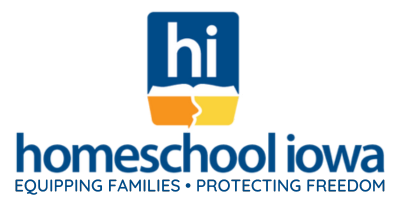Homeschooling the early years? Find answers to your questions. What do I need to teach? When do I start? Do I need curriculum? Then use our seven tips on homeschooling young children to help you get started.
It wasn’t that long ago when kindergarten was half-days and few children attended preschool. We think it's important to remember that this trend toward earlier formal education is a recent one.
And while there’s no one right way to homeschool in the early years,
we want to encourage you to take a little bit of the pressure off
and focus on your individual child and your family bonds.

When do formal lessons begin?
In Iowa, the compulsory school age is 6 years old. So if, on September 15th, your child is under the age of 6, you are not legally required to do any formal education yet. However, children under the age of 6 are considered to be of compulsory school age under Iowa law if they have already been enrolled in public school.
You may choose to wait until the compulsory age of 6 to begin formal instruction, That approach is very much aligned with some popular educational philosophies, such as Classical and the Charlotte Mason method.
Instead, you might choose to begin formal lessons sooner, even though you aren’t legally obligated. Perhaps your kids are already interested in academics or you might just prefer to align their grade level approach with the public educational system. The Montessori method, which uses a hands-on, child-led approach, introduces academics at early ages.
Do I need a curriculum?
Short answer: "No." A curriculum is really not necessary during these early educational years. You’d be surprised at how much children learn just through play, good conversations, and real-life experiences!
However, if you prefer to utilize a curriculum, even through the preschool and kindergarten years, it certainly can help provide structure and guidance if you're a bit unsure as to what and how to teach.
Further, some young children already have a strong thirst for academics and enjoy learning how to write, read, and do their workbooks. These children may enjoy a structured academic curriculum.
So if you have an eager early learner but don’t have the time to plan activities or lessons, then a curriculum may be a good fit for your family.
Even so, if you can, try to keep home education very casual and natural during the preschool and kindergarten years.

What should be our focus?
Your main goal during these early years should be developing a love for learning.
Focus on encouraging your children to become curious explorers who are excited to learn about the world around them. Inspire them to dive deeper into their interests.
Expose your child to beautiful literature, music, and art. Try to keep things simple, fun, and hands-on while focusing on the core subjects (reading, writing, and arithmetic).
These are the years you’re laying a foundation
for the rest of your child’s education and life.
A strong foundation in these core subjects up until 2nd grade will enable your child to succeed in subsequent expanded areas, like geography, history, biology, and more.
Devote these early years of home education to bonding, and build your relationship with your child as well. By nurturing a responsible, respectful child who cherishes the parental bond, you will have fewer struggles as you move toward more formal education.
Seven tips for homeschooling the early years
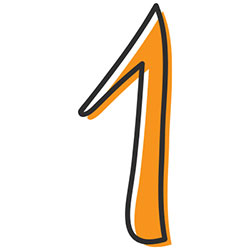
Follow the Child's Lead
In order to instill a love for learning, it’s crucial for you to be sensitive to your child’s learning signs and styles during these early years.
Follow your child’s development and try not to compare them to “Bill” or “Sally.” As babies talk and toddlers walk at different ages, so too young students develop individually in recognizing colors, learning letter sounds, and writing or reading.
If you force these concepts on your children before they are ready, you could jeopardize their desire to learn and even damage your relationship with your child. Children who are struggling with reading or writing or mathematics often just need to take a break and try again in a few weeks or months. Remember, childhood is not a race.
Cheer your children on and encourage their unique development.
Along with following your child’s development, also try to utilize your child’s interests as you teach them. This will spark their attention and curiosity, and has been shown to lead to higher retention rates.
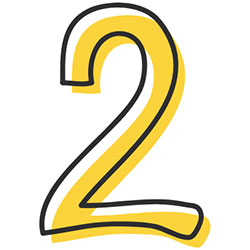
Read Quality Literature

One of the best things you can do during these early homeschooling years is to read aloud to your children.
Reading aloud will help build your child’s vocabulary and also provide a point of reference for when your child does begin to read.
Now is the time to expose them to beautiful literature, so try to choose quality living books that you won’t mind reading over and over again. Folktales, fairy tales, and nursery rhymes are wonderful choices for preschoolers and kindergartners.
You can search for books on just about any topic over on the Simply Charlotte Mason Bookfinder. There are also some wonderful book lists over on Iowa Homeschool Mom, as well as Read Aloud Revival.
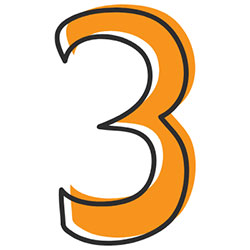
Offer Experiences

Another great way to build your child’s vocabulary and wealth of knowledge is to provide them with a variety of real-life experiences. Again, this will vastly boost their comprehension when they do begin to read.
Take them on field trips to the zoo, state parks, historical museums, conservatories, and a whole lot more. If you need some ideas, be sure to check out this long list of Iowa homeschool field trip ideas or check out this website.
Let your children take part in practical life experiences, such as cooking, cleaning, and helping in the garden. Help them learn to pick out their own clothes, clean up after themselves, pour their own drinks, and help set the table. Encourage your children to try to brush their own hair, wash themselves in the tub, and organize their clothes.
This early responsibility and independence will help set them up for success in their formal educational years. It will give them the discipline they need as they more to more independent learning later on.
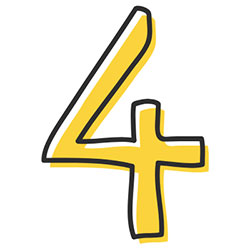
Embrace Play
You've probably heard the quotes, “Play is how children learn best," or “Play is the work of the child.” Well, these statements couldn’t be any more true for young children.
Educational toys, like puzzles, felt playsets, board games, and STEM toys, teach your child various concepts, help build their vocabulary, and test their logic skills.
Through educational toys, your child can learn basic math concepts, like counting, patterns, and addition and subtraction. They can learn letters, letter sounds, and even blending. Even doodle boards encourage writing.
And while educational toys are excellent tools, it’s also important to provide your child with lots of opportunities for free play with open-ended toys.
These types of toys inspire imagination and creativity and truly get your child thinking. They allow discovery and promote independent play.
Some examples of open-ended toys include stacking toys, play silks, blocks, balance boards, and animal figurines.
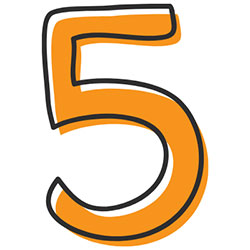
Spend Time Outdoors

The importance of outdoor play is often overlooked in our busy technological world.
However, being outside and playing in nature is vital to your child’s physical and mental well-being – and for your health too.
Nature is often your children's first introduction to science as well. So when you’re outside with your child, take the time to point out the different plants and animals around you and anything else you may know about the environment.
Let your children start a nature collection, and just have fun observing and admiring God’s creation.
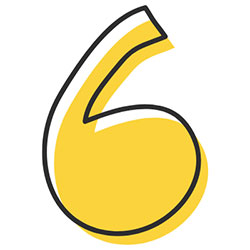
Establish Morals & Habits
Now is also the time to instill good morals and values into your children. It’s the time to teach habits and connect as a family.
Read your children books virtues, such as kindness, respect, good manners, and faith. Make a point to instill good habits in these early years, such as obedience, attention, and truthfulness.
If you do this work now, your life will be so much easier as your children grow. They will be more likely to listen and follow directions during formal lessons. They will be more willing to help out with chores and yardwork, and, they will more likely just be good-hearted people with strong morals.
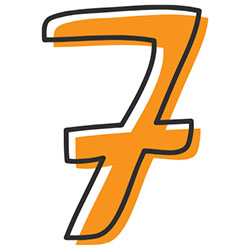
Offer Hands-On Activities
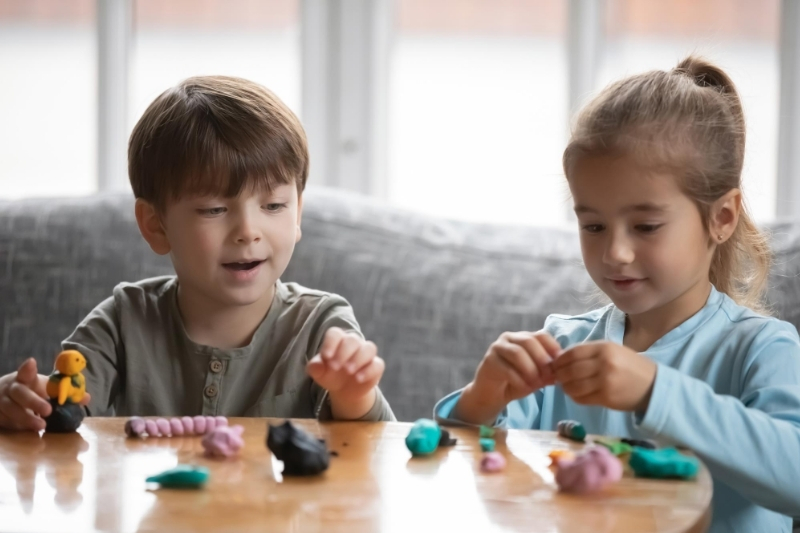
If your child is eager for more formal lessons, then go ahead and follow that desire, but try to keep it play-based and fun. Plan structured activities based on your child’s current interests.
Do lots of arts and crafts, and let your children explore with different sensory items, such as play-dough, kinesthetic sand, water tables, rainbow rice, and even plain ole’ dirt.
Offer fine motor activities to help strengthen those little hands for writing. This could be lacing, beading, playing with play-dough, transferring pompoms with tweezers, cutting, or collecting water with pipettes.
If your child is gaining more interest in reading, writing, and math, then here are some fun hands-on ideas on how to prepare them for more formal lessons in those subject areas:
- Reading: Play with foam letters in the bathtub, place letter magnets on the fridge, use sandpaper letters and various small objects to introduce letter sounds, use wooden reading blocks with those eager early readers.
- Writing: Write in shaving cream, use play-dough to mold letters, offer a sand/salt tray to write in, trace with dry erase markers, and just have fun with chalk.
- Math: Play board games, use various manipulatives for counting, adding, and subtracting, and make patterns with small erasers, unifix cubes, and objects found in nature. Introduce basic measurement concepts, like big/little, height, and length, using toy figurines.
Ready for your Adventure?

Enjoy your homeschooling adventure
with your young child!
Use these early homeschool years
to lay a good foundation for the years to come.
Fill your days with picture books, crafts, and lots of play, and create an environment that will foster your child to learn naturally.
If your child is interested and asking to learn how to read, write, and do math, then go for it! There are many fun hands-on ways to teach these core subjects to littles who don’t quite have that abstract thinking yet.
And while a curriculum is certainly not necessary during these early years, if you feel it’s right for your child and your family, then go ahead and give it a try. Some children are ready for workbooks and structured seat work.
But remember, if you’re feeling overwhelmed with homeschooling in these early years, then you’re probably doing too much.
Take a deep breath, and just have fun exploring, growing, and learning with your child.

Nicolle is a former zoologist turned homeschooling mom.
She and her husband homeschool their two children
using the Charlotte Mason and Montessori methods.
She shares homeschooling tips, activity ideas, book lists, and more
at Iowa Homeschool Mom.
